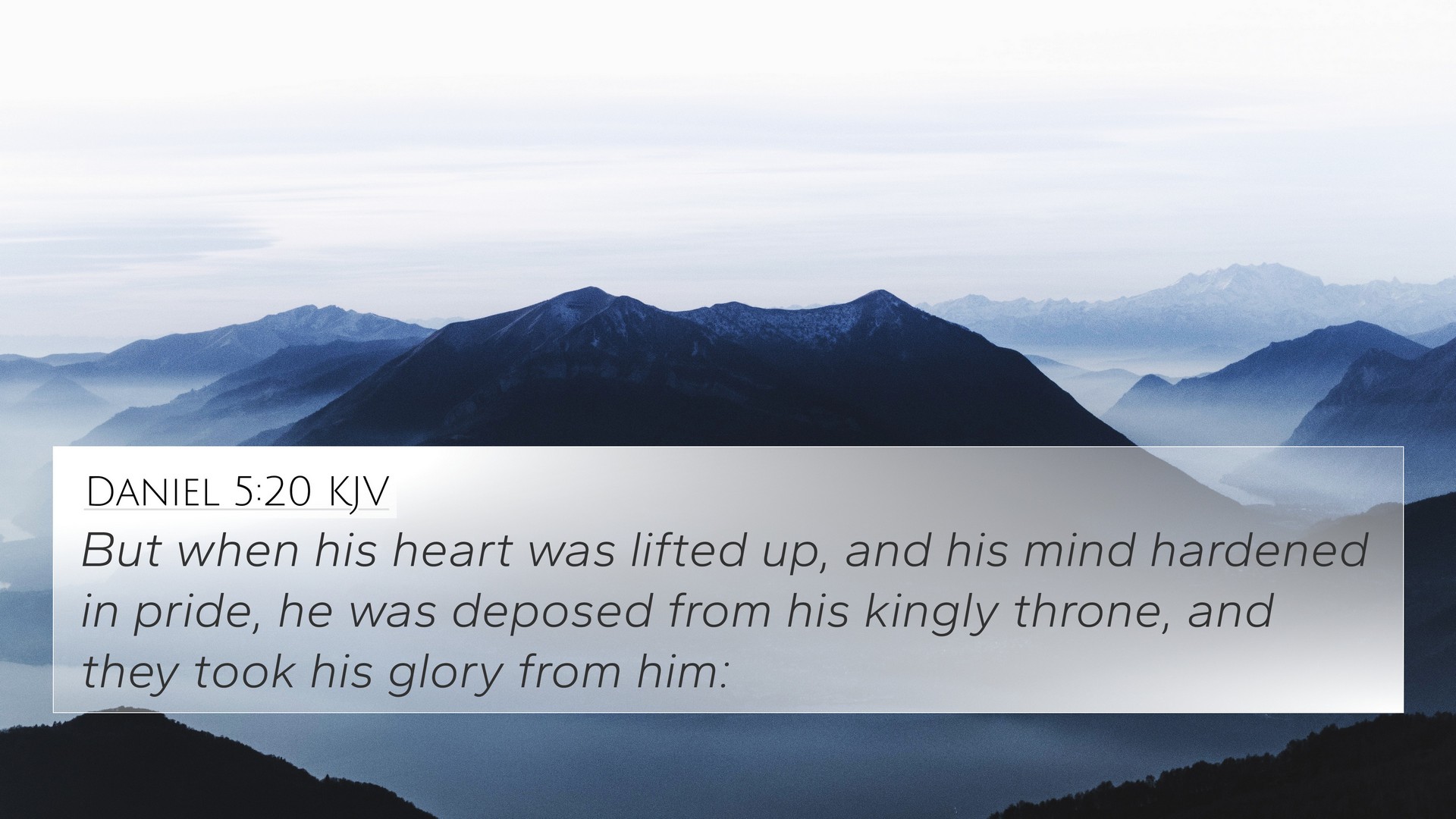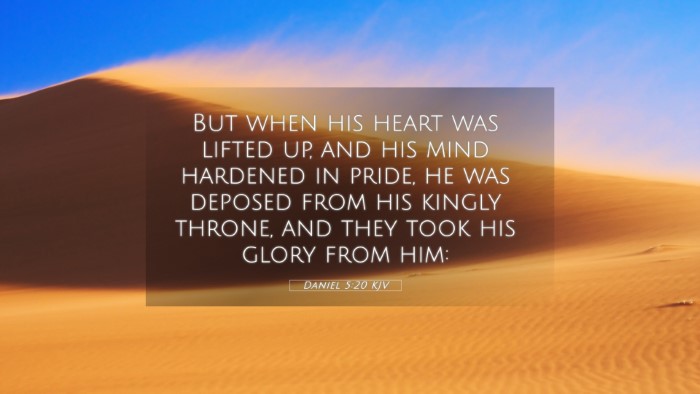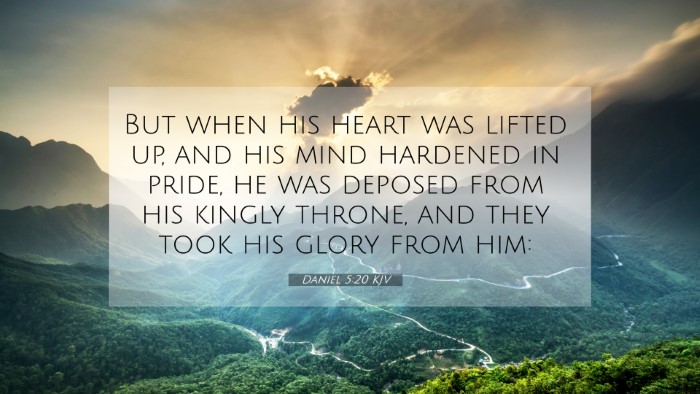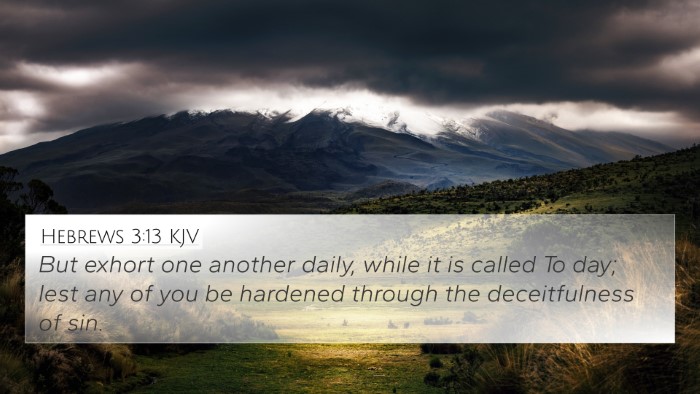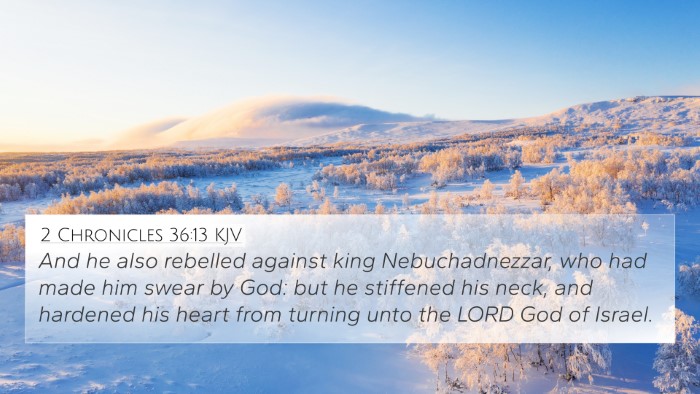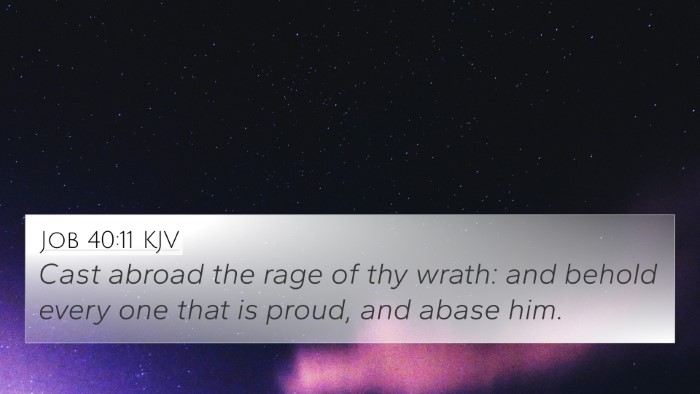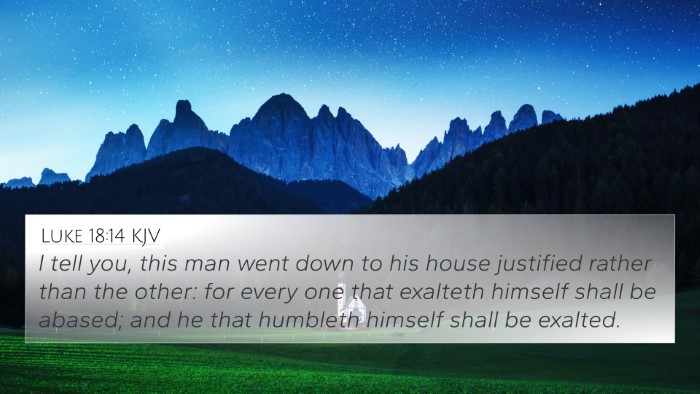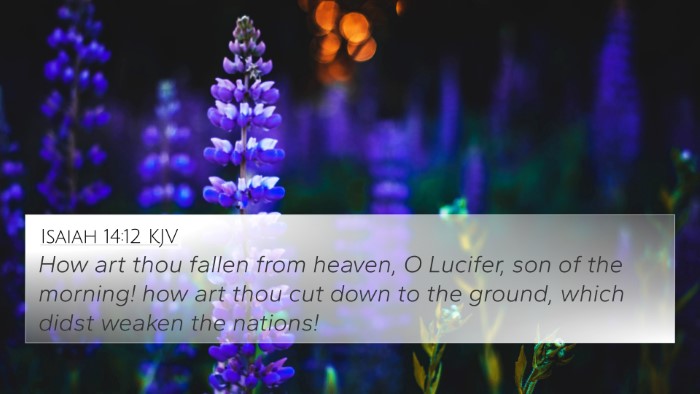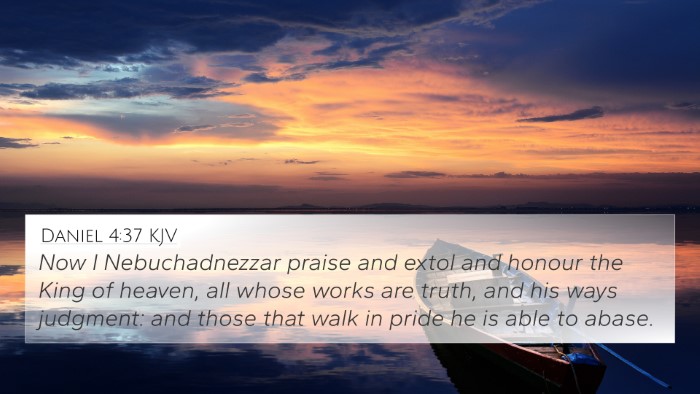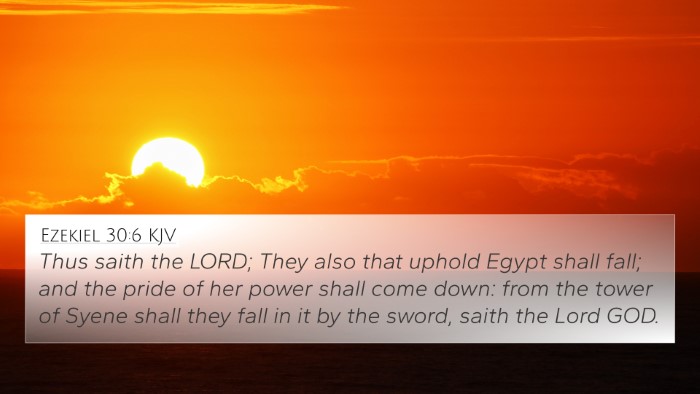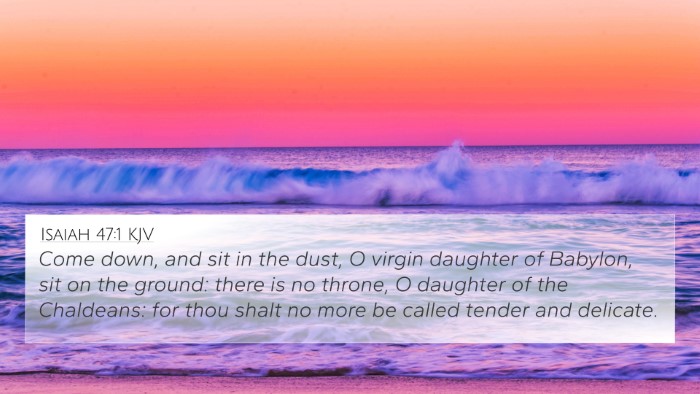Bible Verse Meaning and Interpretation of Daniel 5:20
Bible Verse: Daniel 5:20
“But when his heart was lifted up, and his mind hardened in pride, he was deposed from his kingly throne, and they took his glory from him.”
Summary of Daniel 5:20
Daniel 5:20 recounts the fall of King Nebuchadnezzar due to his pride and arrogance. This verse serves as a poignant reminder of the consequences of pride and the importance of humility before God. It illustrates the transformative power of God’s judgment and highlights the theme of human folly against divine authority.
Insights from Public Domain Commentaries
Matthew Henry’s Commentary
Henry emphasizes that the pride of Nebuchadnezzar led to his downfall. His heart being lifted demonstrates a common human tendency to become intoxicated with power and success. This pride clouds judgment, leading to self-deception and ultimately, a fall from grace. Henry points out that God opposes the proud, reminding readers of the biblical truth found in Proverbs 16:18: “Pride goes before destruction, and a haughty spirit before a fall.”
Albert Barnes’ Notes on the Bible
Barnes notes that the “mind hardened in pride” reflects a persistent state of arrogance that positions one against God’s authority. He draws connections between this event and themes from earlier chapters, highlighting God’s sovereignty over earthly rulers. This speaks to the broader narrative of the Book of Daniel, which consistently affirms that God's power is final. The parallel of Nebuchadnezzar’s experience acts as a warning for all who might elevate themselves above their appointed station in life.
Adam Clarke’s Commentary
Clarke provides a detailed examination of the language used in this verse, emphasizing the metaphorical aspects of “heart lifted up” and “glory taken.” He highlights how the king’s initial greatness could not protect him from God’s judgment when pride took root in his heart. Clarke correlates this with the notion found in James 4:10: “Humble yourselves before the Lord, and he will lift you up.” His analysis denotes a theological understanding of the human condition in a divine context, anchoring this moment in a broader spiritual narrative.
Bible Cross References for Daniel 5:20
- Proverbs 16:18: “Pride goes before destruction, and a haughty spirit before a fall.”
- James 4:6: “But he gives more grace. Therefore it says, ‘God opposes the proud, but gives grace to the humble.’”
- Isaiah 14:12-15: Discusses the fall of Lucifer due to pride.
- Luke 1:51-52: God has shown strength with His arm; He has scattered the proud in the thoughts of their hearts and lifted up the humble.
- Ezekiel 28:17: Describes pride as a reason for downfall, similar to Nebuchadnezzar’s story.
- 1 Peter 5:5: “God opposes the proud but gives grace to the humble.”
- Philippians 2:9-10: Indicates that Jesus was exalted because of His humility.
- Matthew 23:12: “Whoever exalts himself will be humbled, and whoever humbles himself will be exalted.”
- Daniel 4:37: Nebuchadnezzar praises God and recognizes His sovereignty after his period of humiliation.
- Proverbs 18:12: “Before destruction a man’s heart is haughty, but humility comes before honor.”
Connections and Themes in Biblical Interpretation
The verse primarily illustrates the consequences of pride as a recurring theme throughout Scripture. These verses are often cross-referenced, leading to a deeper understanding of the biblical message regarding humility and the divine order:
- Thematic Connection: The theme of pride and humility is seen throughout both the Old and New Testaments.
- Cross-Referencing Biblical Texts: Many of the verses mentioned relate to the significance of humility before God and the dangers of pride.
- Inter-Biblical Dialogue: The connections between Daniel 5:20 and other biblical texts reflect a unified narrative about God’s justice and mercy.
SEO Content and Bible Cross-Referencing Tools
Understanding Daniel 5:20 in context allows for strong biblical study and thematic exploration. Tools for cross-referencing Bible verses such as concordances or cross-reference guides greatly aid in studying these themes. When engaging in cross-reference Bible study, it becomes essential to identify connections between Old and New Testament narratives, providing a comprehensive understanding of the moral and spiritual lessons conveyed through such passages.
For those seeking to delve deeper into comparative verse analysis, resources like comprehensive Bible cross-reference materials and the use of Bible chain references can facilitate a robust scholarly discussion of how verses relate to one another, thus enriching one's spiritual journey. Learning "How to find cross-references in the Bible" effectively enhances the interpretation of individual verses and broad themes.
Conclusion
Daniel 5:20 serves not just as a historical account but as a timeless reminder of the perils of pride. By utilizing a cross-referencing methodology and engaging with the rich commentaries available, readers can uncover the deep connections between Bible verses that reveal God’s character and will. Each connection reinforces the biblical truth regarding humility, divine authority, and the ultimate sovereignty of God over all creation.
